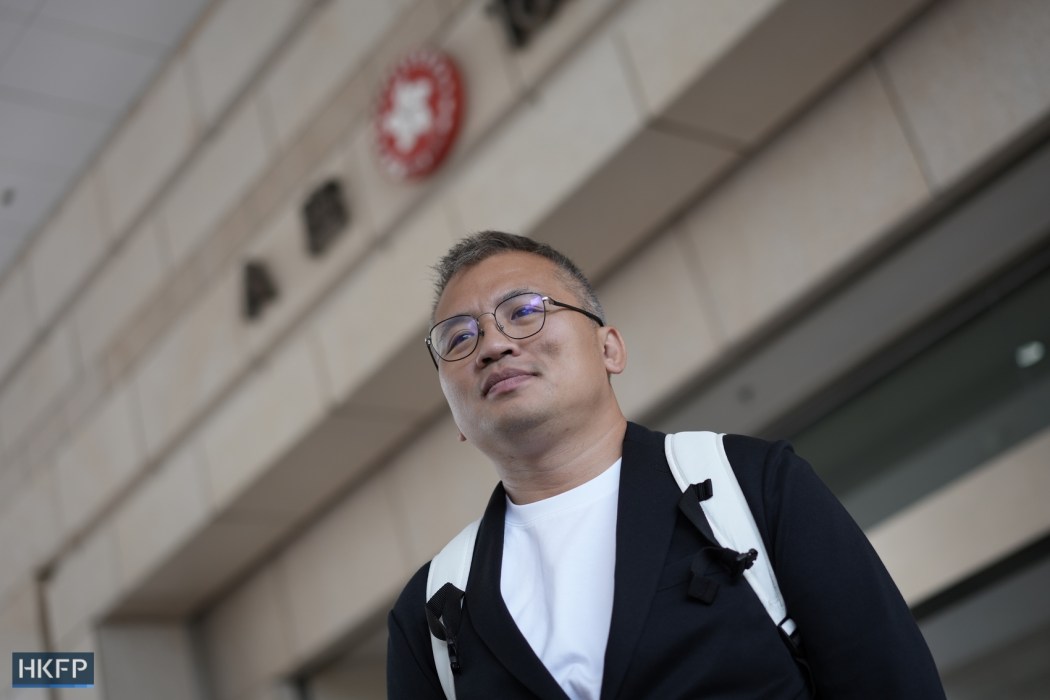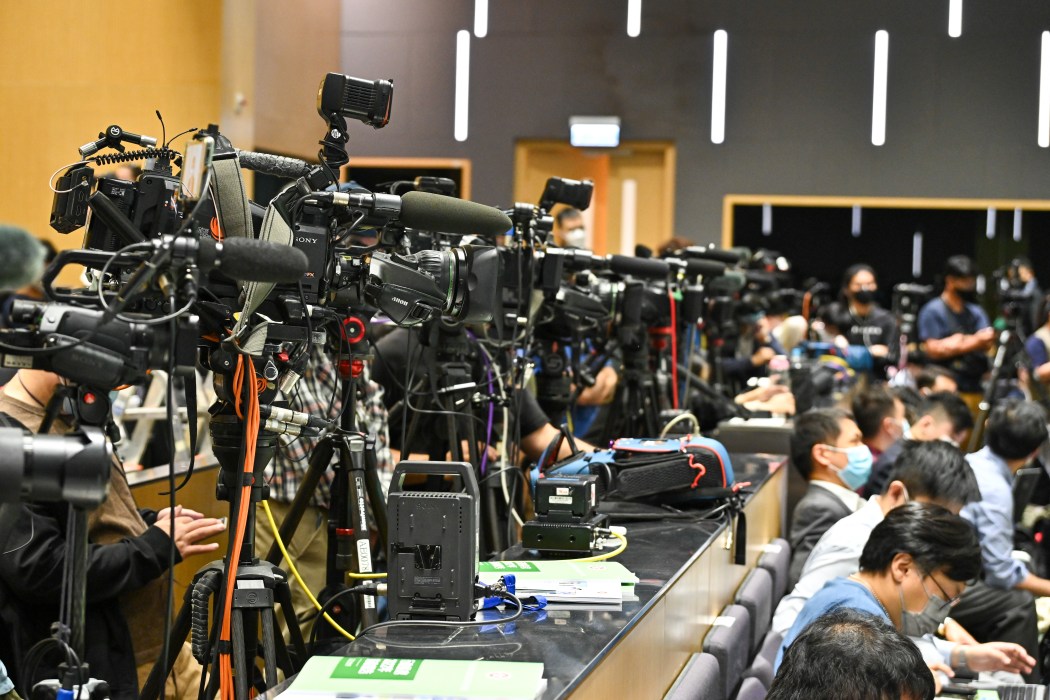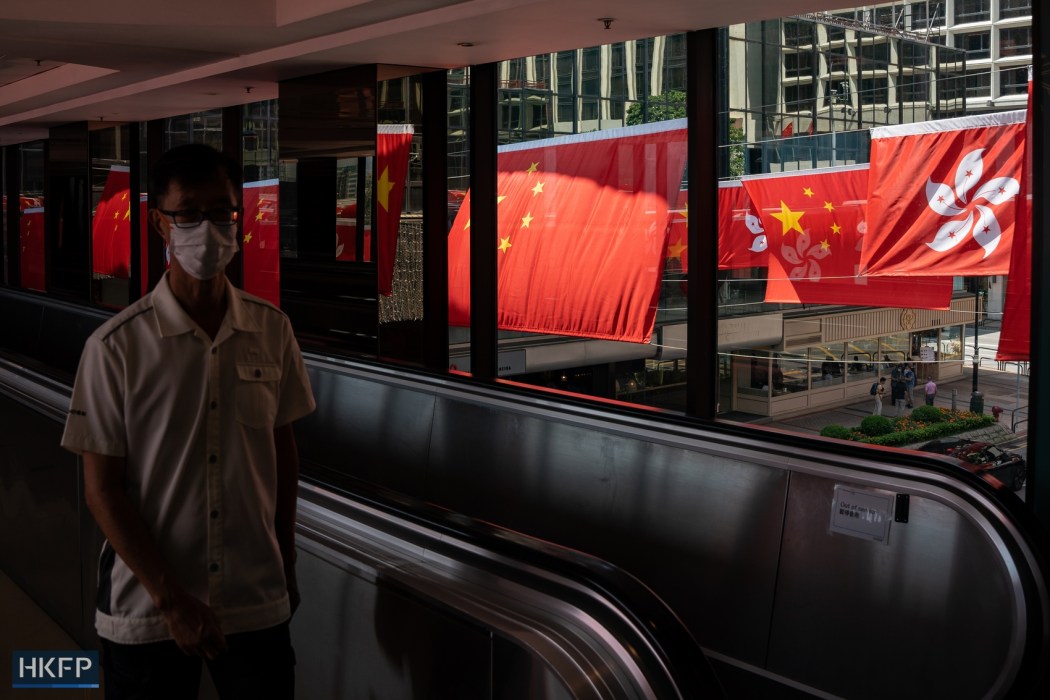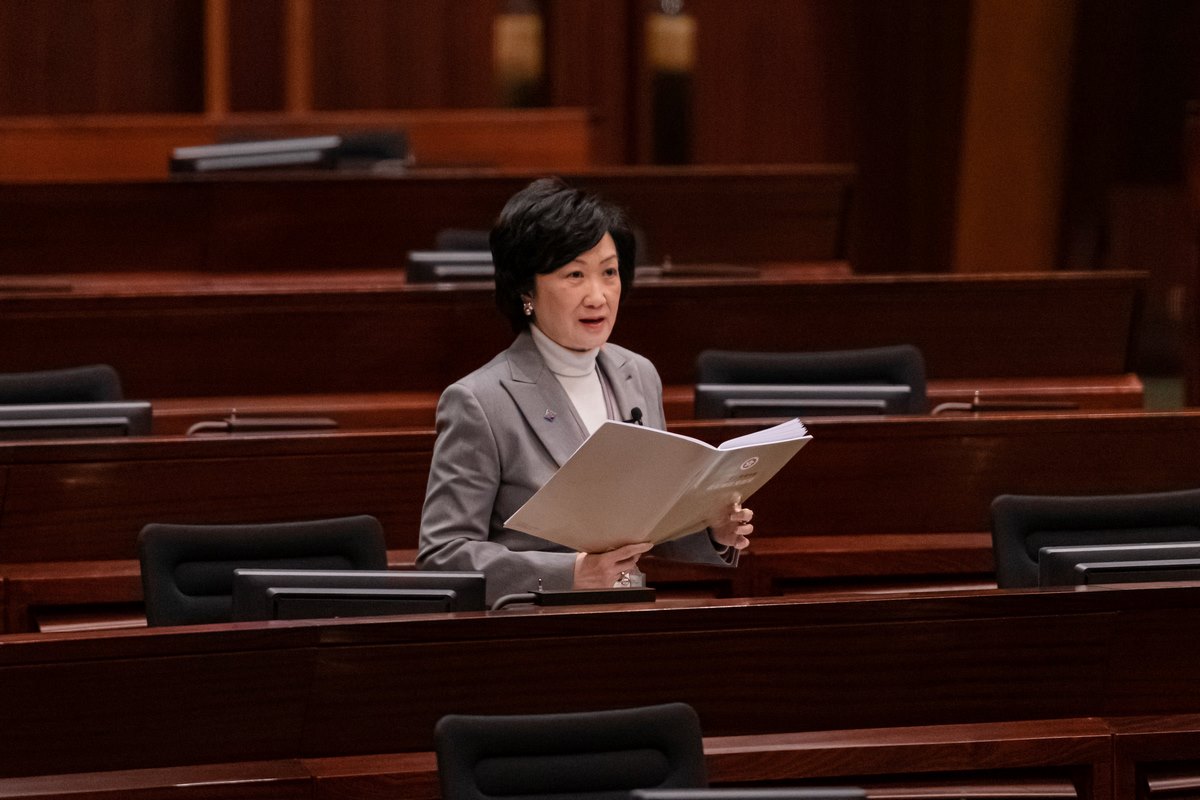The “vague” legislative proposal for Hong Kong’s domestic security law has caused journalists working in the city to “feel in danger,” a local press group chief has said.
Preliminary results from a survey conducted by the Hong Kong Journalists Association (HKJA) showed that more than 90 per cent of members who responded believed that the Article 23 legislation would have significant impact on their work, chairman Ronson Chan said at a panel discussion held by the Foreign Correspondents’ Club, Hong Kong (FCCHK) on Monday.

Article 23 of the Basic Law stipulates that the government shall enact laws on its own to prohibit acts of treason, secession, sedition and subversion against Beijing. Its legislation failed in 2003 following mass protests and it remained taboo until after the onset of the separate, Beijing-imposed security law in 2020. Pro-democracy advocates fear it could have a negative effect on civil liberties but the authorities say there is a constitutional duty to ratify it.
The government reactivated the controversial legislative exercise last month by publishing a 110-page consultation paper, inviting members of the public to submit their views within four weeks. The consultation will end next Wednesday.
Press freedom in Hong Kong
Chan said on Monday that more than 75 per cent of the journalists who responded to the HKJA survey said they believed the homegrown security law would only have a negative impact on press freedom.

According to the consultation document, the government is proposing a new type of offence relating to collusion with external forces to publish false or misleading statements of fact to the public with intent to endanger national security.
The discussion panel, which also consisted of Executive Council convenor Regina Ip and legal scholar Simon Young, were asked whether the recommendation amounted to enacting a “quasi-fake news law” in the city.
In response, Chan said the HKJA had a small task force responsible for studying the legislative proposal, and some members raised concerns about correspondents working for foreign media outlets, which may be subsidised by overseas governments.
See also: Explainer: The decline of Hong Kong’s press freedom under the national security law
“How the law and the articles [were stated] were quite vague. It is very easy for journalists to feel [in danger] in their work. I think it may affect the atmosphere for freedom of press, therefore we are highly concerned about the legislation,” he said.
The press group leader mentioned the ongoing sedition cases involving defunct newspaper Apple Daily and online outlet Stand News. The concerns of journalists in Hong Kong would vary depending on which media organisation they worked for, Chan said.

“The worries exist every day, and it depends on which organisation you work for. I work for an independent media outlet, I have to think more about that,” he said.
Foreign media
The HKJA chairman also raised concerns over the proposed move to criminalise theft of state secrets and espionage under the domestic security law. Although the enactment may not cause mass arrests, it would “change the atmosphere” in the city and make people less willing to accept interviews with foreign media outlets, he said.
Suggestions of adding a public interest defence to protect journalists and other people from the offence of unlawful disclosure of state secrets with intent to endanger national security have been floated since the legislative proposal was unveiled.
But Chan said such a defence may not have “any actual meaning” to journalists, or they may not easily get protection from it, as it would depend on the judgement of local courts, which had stressed in previous rulings that freedoms were not absolute.
“In the past one year, we can see that the court – the judges – used a very conservative and very narrow mind to think about the rights, especially when we are talking about the freedom of speech and the freedom of the press,” he said.
Another panel guest Ip, who stepped down as the city’s security chief in 2003 after the Article 23 enactment failed, said there were “strict preconditions” in the proposed law to ensure people would only fall foul of an offence if the publication of sensitive information without lawful authority endangers national security.
“I don’t think the media really need to worry,” she said, adding the government had “learned a lesson from my fiasco.”

Legal expert Young of the University of Hong Kong praised the legislative proposal as being “very thoughtful in general” by emphasising the intention of endangering national security as an element in the theft of state secrets offences.
“As a criminal lawyer, when I see that, I am happy, because that’s the highest level of mens rea, it’s not easy to prove that. That’s a very important safeguard,” he said. Mens rea refers to considering the intention or knowledge of wrongdoing as part of a crime, rather than just the action or conduct of the suspect.
“It’s not just any kind of knowledge or disclosure, you have to show that that person really intended to endanger national security. If they are doing legitimate journalism business, it’s unlikely they would have that intention,” he added.
Hong Kong has plummeted in international press freedom indices since the onset of the security law. Watchdogs cite the arrest of journalists, raids on newsrooms and the closure of around 10 media outlets including Apple Daily, Stand News and Citizen News. Over 1,000 journalists have lost their jobs, whilst many have emigrated. Meanwhile, the city’s government-funded broadcaster RTHK has adopted new editorial guidelines, purged its archives and axed news and satirical shows.
See also: Explainer: Hong Kong’s press freedom under the national security law
In 2022, Chief Executive John Lee said press freedom was “in the pocket” of Hongkongers but “nobody is above the law.” Although he has told the press to “tell a good Hong Kong story,” government departments have been reluctant to respond to story pitches.
Support HKFP | Policies & Ethics | Error/typo? | Contact Us | Newsletter | Transparency & Annual Report | Apps
Help safeguard press freedom & keep HKFP free for all readers by supporting our team
























